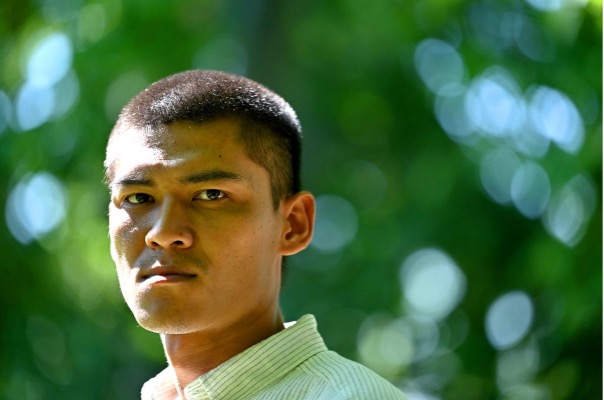9th June 2021
The news today is a mix of good and bad news. Mratt Thaw Thu a well-known journalist from Myanmar gave an interview after being out of view for a few weeks. The good news is that he is safe, he is one of the best reporters from Myanmar, but the bad news is that he has had to flee to Spain to be safe. He will resume reporting using contacts remaining in Myanmar.

While boarding the plane that would fly him to Europe, Ko Mratt Kyaw Thu felt safe for the first time since Myanmar’s military coup on February 1.
It had been an arduous few months for the journalist who quickly found himself on the military junta’s wanted list for his reporting of its deadly crackdown on anti-coup protesters.
“I felt safe when I was on the plane, after passing immigration in Thailand, that was the moment when I felt a little bit freer,” he told AFP in Madrid, where he arrived on June 1 and is now applying for asylum.
Journalists have found themselves on the frontline, with troops rounding up reporters and shutting down six publishing houses and four digital media outlets.
Aged 30, Mratt Kyaw Thu rose to prominence after the coup for his criticism of the junta online.
He has written widely on Rohingya issues and won AFP’s 2017 Kate Webb award for his outstanding coverage of the ethnic and religious conflicts in Myanmar.
Before the coup, journalists had faced some restrictions while working, but after the takeover things became much worse.
“In the first week, the military began arresting all the prominent journalists and activists, because they thought if they did that, there would be no more big protests,” he told AFP.
Fearing arrest, Mratt Kyaw Thu left his apartment on February 12 to stay with friends. And he never went back.
With pro-military informers pretending to be journalists, real reporters were viewed with suspicion by protest leaders and had to change mobile numbers often to avoid detection by the junta.
Caught up in the crackdown, many reporters fled to the countryside or abroad, he said.
According to monitoring group Reporting ASEAN, 87 journalists have been arrested so far, with 51 still in custody in figures correct to June 3.
Among them is American journalist Mr Danny Fenster, the managing editor of Frontier Myanmar – a news outlet where Mratt Kyaw Thu used to work – who was arrested on May 24 at Yangon airport while trying to leave Myanmar and remains in the city’s Insein Prison.
So far, three have been charged with “causing fear” and spreading “false news” which carries a penalty of up to three years in jail.
Myanmar ranked 140 out of 180 countries in the 2021 Reporters Without Borders Press Freedom Index.
On the streets, things were getting progressively worse, with protesters facing a relentless campaign of military violence in which troops would often barge into people’s homes.
“We’re all just waiting for the knock on the door. Sometimes you hear footsteps on the stairs, and it’s like they’re coming for you: you have this feeling all the time,” Mratt Kyaw Thu said.
“Even heavy rain can make people fearful because it sometimes sounds like gunfire.”
One particularly horrific image still haunts him – that of a murdered activist from Daw Aung San Suu Kyi’s National League for Democracy.
“He was arrested and killed in custody by pouring boiling water down his throat,” he said, describing an image of the victim’s face as grotesquely swollen and mutilated.
Until that point, nobody had been overly worried about being arrested but now there was the very real threat of torture.
“So, I realised I shouldn’t be arrested.”
Days later, a friend called to warn him that soldiers from a unit known for a brutal crackdown on the Rohingya – a persecuted Muslim minority group – were conducting searches in the street outside his apartment.
“My friends took a picture and sent it to me saying: ‘You should leave Yangon right now’.”
Despite the military’s lockdown on movement, he managed to reach a township near the Thai border with help from friends, NGOs, ethnic armed groups “and even some ordinary soldiers”.
“They helped me a lot, I was not on my own.”
He crossed into Thailand and after two weeks, he got a visa for Europe and booked a ticket to Madrid through his connections to the Spanish news agency EFE, arriving after a nearly six-week delay in Frankfurt.
Although the odds are massively stacked against them, he’s confident the pro-democracy protesters will succeed, suggesting the revolution “will continue for the next year or two”.
Source The Frontier 9th June 2021.
I am collecting some information on the formation of guerrilla cells in the major cities, and I will give an update on them tomorrow.
Please share this article so that others can discover The BFD
